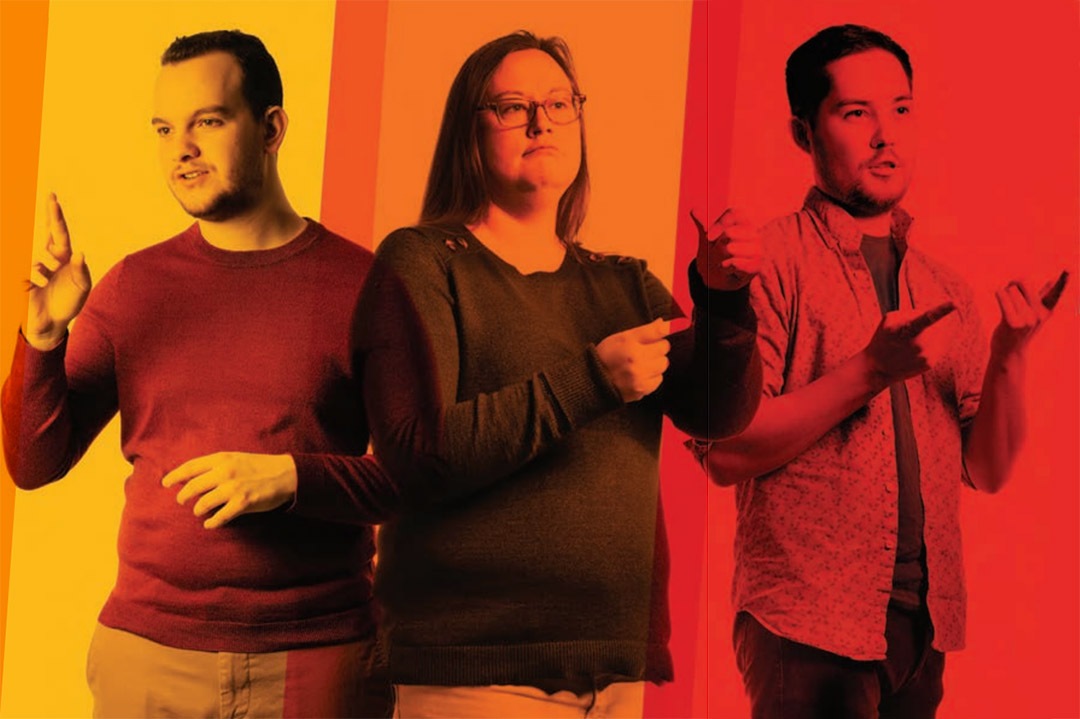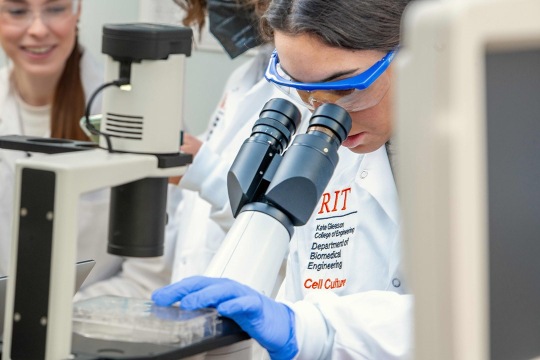For decades, deaf and hard-of-hearing students attending RIT’s National Technical Institute for the Deaf have been earning associate, bachelor’s, and master’s degrees. This year, the first three NTID-supported students are on track to earn their doctoral degrees from RIT.
As the university continues to grow its doctoral degree portfolio, more deaf and hard-of-hearing students are choosing to pursue areas of advanced research at RIT instead of studying elsewhere. RIT currently offers 11 Ph.D. programs, with a new one in business administration starting this fall.
“The combination of world-class access services along with mentoring and support from dedicated faculty engaged in these programs is providing yet another career education pathway for deaf and hard-of-hearing individuals,” said Gerry Buckley, NTID president and RIT vice president and dean. “We are confident that each student will make an impact on their fields and disciplines as they move forward.”
All three computing and information sciences Ph.D. candidates—Abraham Glasser, Noella Kolash, and Matthew Seita—are researching unique ways to improve accessibility.
Research in accessibility for deaf and hard-of-hearing people is vital to this community, according to Matthew Huenerfauth, dean of RIT’s Golisano College of Computing and Information Sciences and Ph.D. adviser for Glasser and Seita.
“I have discovered that the most thought-provoking and innovative research topics from our Ph.D. candidates are often the result of personal experiences that have shaped their views on what is most needed in this world,” said Huenerfauth. “These students are looking years into the future as to where computing technologies will be, and they are asking how deaf and hard-of-hearing people would want technology to support communication and information access.”




